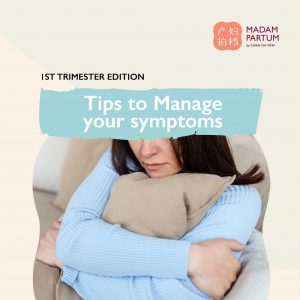
12 Tips To Manage Pregnancy Symptoms / Blues
Major Changes in your Body You might be overwhelmed by the number of vast changes
The third trimester, from week 29 to week 40 (or until birth), is the final lap of pregnancy. This period can be both exciting and challenging as the body prepares for childbirth. Mothers at this stage will start feeling the anxiety, especially for a first time mom, of meeting your child for the first time. Mothers will start to worry about many other issues that lead to the birthing day and if everyone and everything is ready to receive your little one back home.
The third trimester of pregnancy is a time of rapid growth for the baby and preparation for childbirth. In Traditional Chinese Medicine (TCM), this stage is crucial for ensuring a smooth delivery and postpartum recovery. TCM emphasizes nurturing the mother’s body, promoting relaxation, and preparing for labor.
During the third trimester, common symptoms are body and feet swelling, back pain, shortness of breath, insomnia, and Braxton Hicks contractions. Understanding what you will likely experience, you can now find out what you can do to overcome or relieve the symptoms.
During the third trimester, as your baby grows bigger, the requirement for fluid increases, causing your body to produce more fluid and retention. Also, the growing uterus puts pressure on the veins and slows down the return of blood and Qi from the legs, causing fluid to accumulate and hence swelling.
You can go for Pre-Partum massage to help with your water retention issue, and improve Qi and Blood circulation. If swelling affects your mobility or ability to proceed with your daily routine, you can consult a TCM Physician to seek TCM treatment such as acupuncture and TCM herbal prescription to ease your water retention.
As the baby grows, the additional weight can put significant strain on your back, causing discomfort and pain. During the third trimester, you might feel the back pain to be more severe, but do note that your baby has grown substantially since the Second Trimester, hence, the issue might not be as severe as you thought it might be.
You can start your Pre-Partum massage in the Third Trimester if you haven’t started your massage during your Second Trimester. If you are facing extreme difficulty in your daily life due to back pain, you can consult a TCM Physician to understand if you need additional TCM treatment to help you relieve your back pain.
As the baby grows, the uterus expands and can press against the diaphragm, making it difficult to take deep breaths. This shortness of breath can be particularly noticeable when lying down or engaging in physical activity.
TCM treatments such as acupuncture and TCM herbs can help improve respiratory function.
Difficulty sleeping is common in the third trimester due to physical discomfort and anxiety about the upcoming birth.
Many pregnant women find it challenging to get a good night’s sleep during the third trimester. Discomfort from the growing belly, frequent urination, and other symptoms can all interfere with sleep. Creating a comfortable sleeping environment and schedule can make a significant difference.
Acupuncture and TCM herbs have been utilized to help people with insomnia, but do consult your TCM Physician to get the right treatment and prescription suitable for pregnant mothers.
Getting to the last lap of your pregnancy, there will be more things that need you to consider and make decisions. You will be overwhelmed with different considerations and decisions you will need to make, so by managing your pregnancy symptoms, you can keep yourself fit to welcome your little one into your life. We hope we have provided you with sufficient knowledge and insights to your pregnancy symptoms, you can let us know if you have any other symptoms that you wish to find out more about.
You can also look at how to prepare for your breastfeeding journey coming up next.

Major Changes in your Body You might be overwhelmed by the number of vast changes

Wearing an external binder or corset gives the muscles support while they’re healing postpartum. It assists in uterus recovery and

Globalization has definitely brought people from around the world closer, enabling marriages to transcend geographical